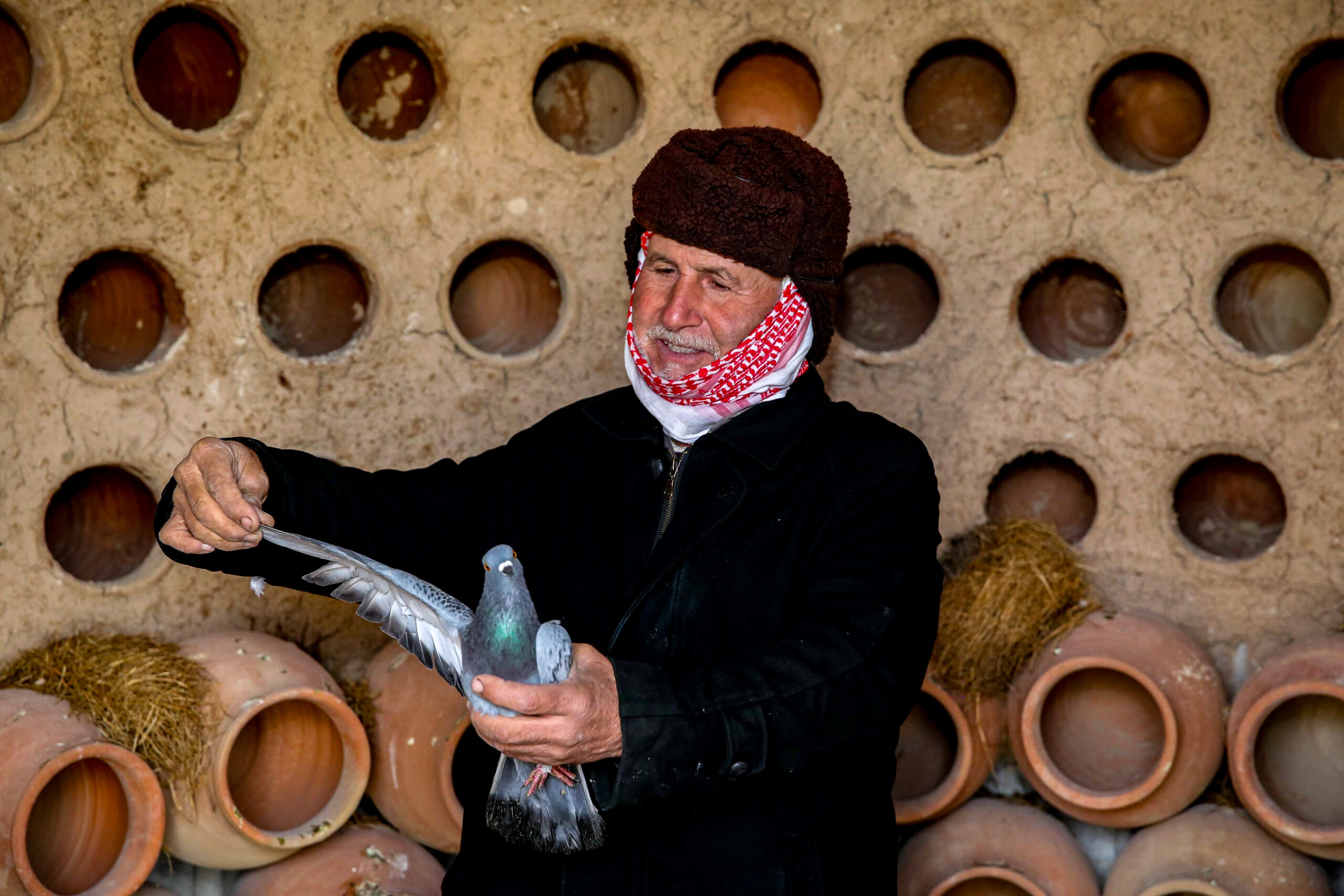
Against a backdrop of economic instability, climate-aggravated drought, and unsustainable agricultural systems, Abo Ali is rearing pigeons as an alternative source of income. AKF is supporting rural communities like his in Syria’s Aleppo, Homs, and Hama Governorates to diversify their livestock to build resilience to the food and climate crisis in the country. Pigeon, quail and partridge are well adapted to the arid climate and represent a valuable, alternative source of protein and nutrition.
Location: Hama, Syria
Photographer: Ali Shaheen
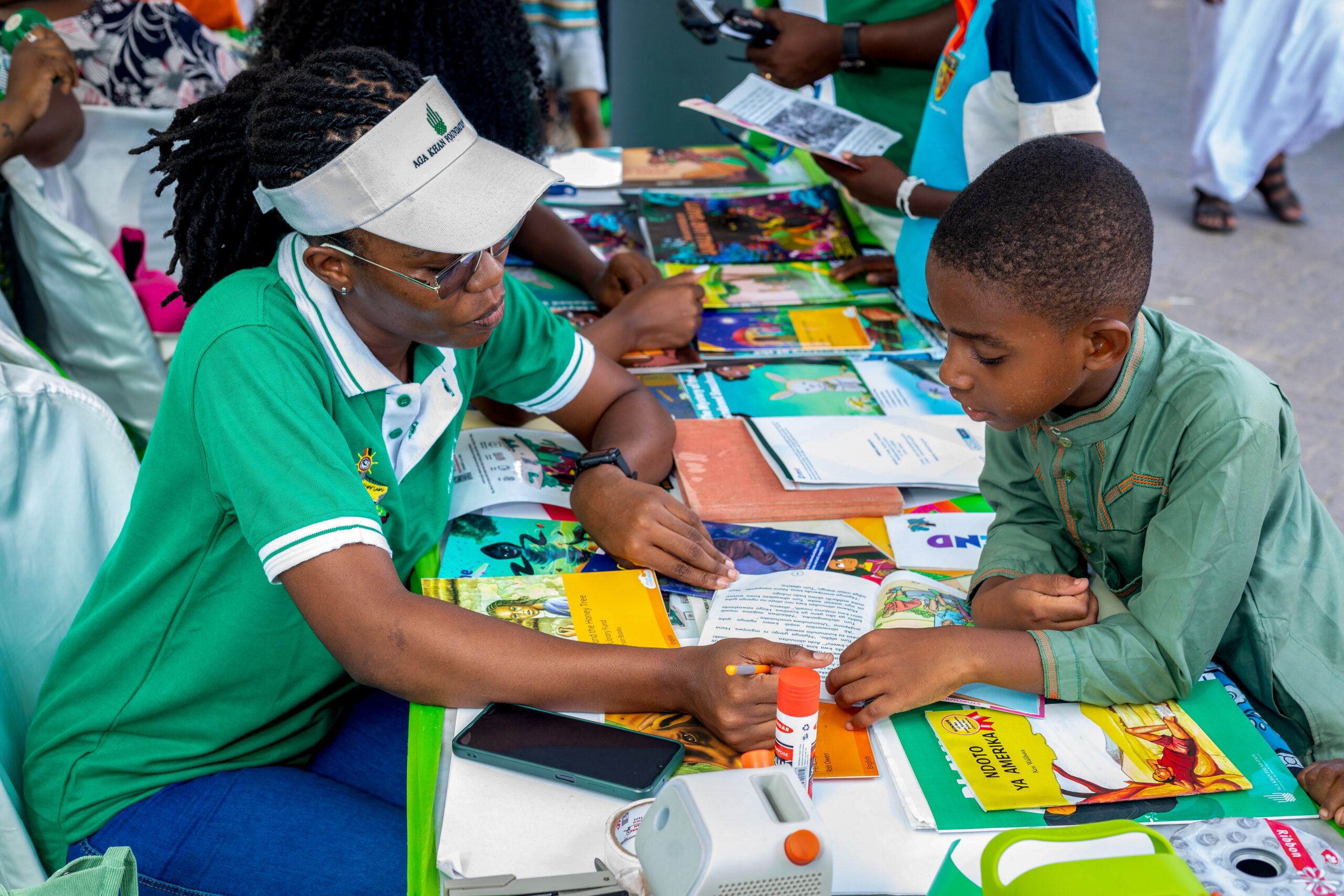
At the Lamu Cultural Festival – which is hosted every year to celebrate Lamu County’s vibrant culture – the AKF team set up a community library where learners and parents had the opportunity to try out new learning innovations created by local teachers and educators, as well as AKF’s education experts. Here, a young boy is reading a storybook from ‘The Mysteries of Jabali and Sauti’ multimedia series, co-created by AKF and three Kenyan creative studios. The series is available to learners, parents and educators everywhere on The Learning Hub.
Location: Lamu County, Kenya
Photographer: Isaac Njagi
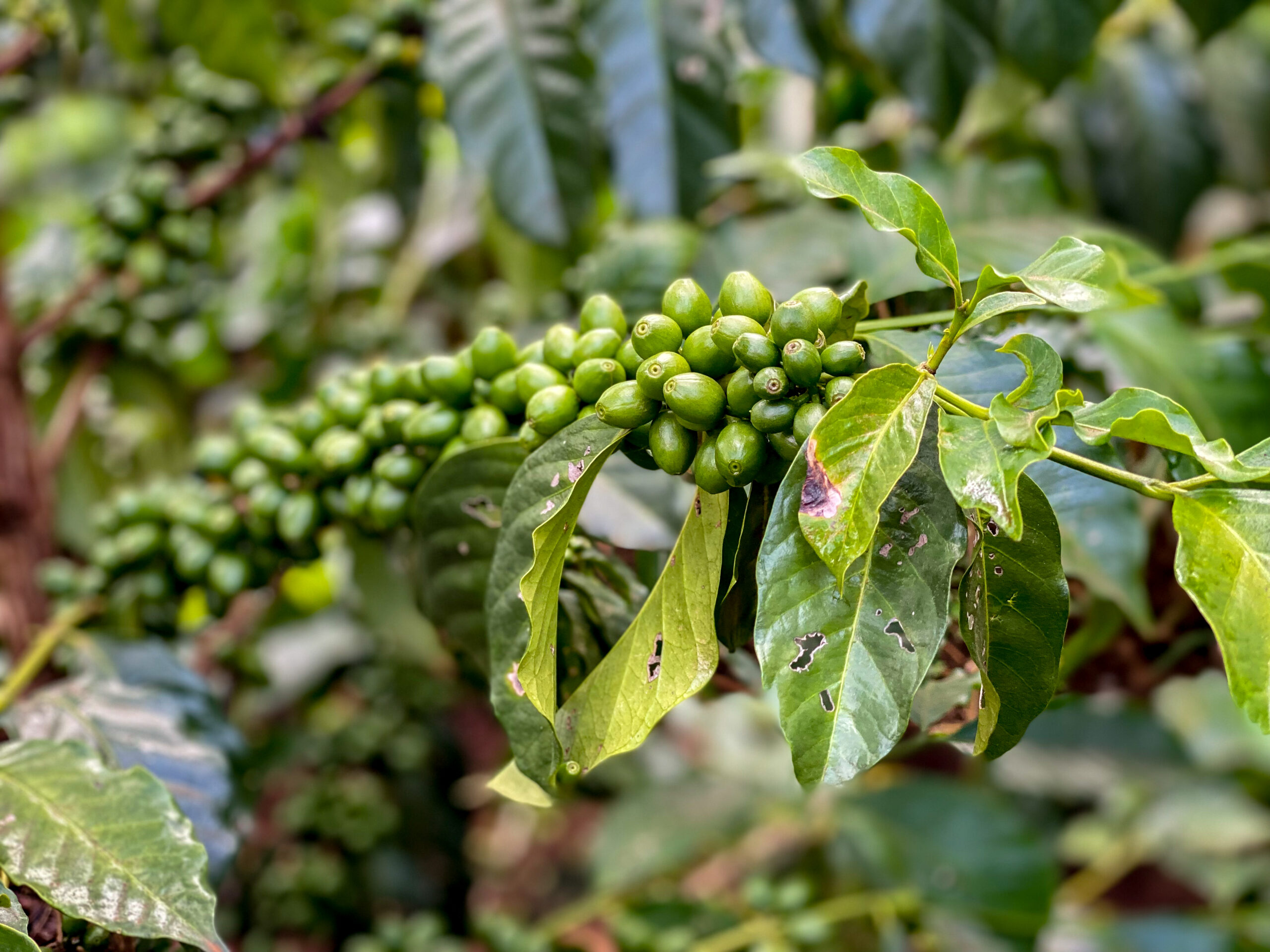
On a farm a couple of hours drive from Nairobi, Peter has started growing these Arabica coffee beans as well as maize to diversify his crops. With AKF’s support, he is trialling a new regenerative farming approach through the Maendeleo Initiative. Peter is using 100% organic and natural inputs to make his own bio-pesticide and bio-fertiliser, and the results are plain to see – his crops are lush and green, the soil red and healthy. When asked would he consider using chemical fertilisers or pesticides again, Peter exclaimed, “Never, never, never, never, never!”.
Location: Kirinyaga County, Kenya
Photographer: Ana Barfield
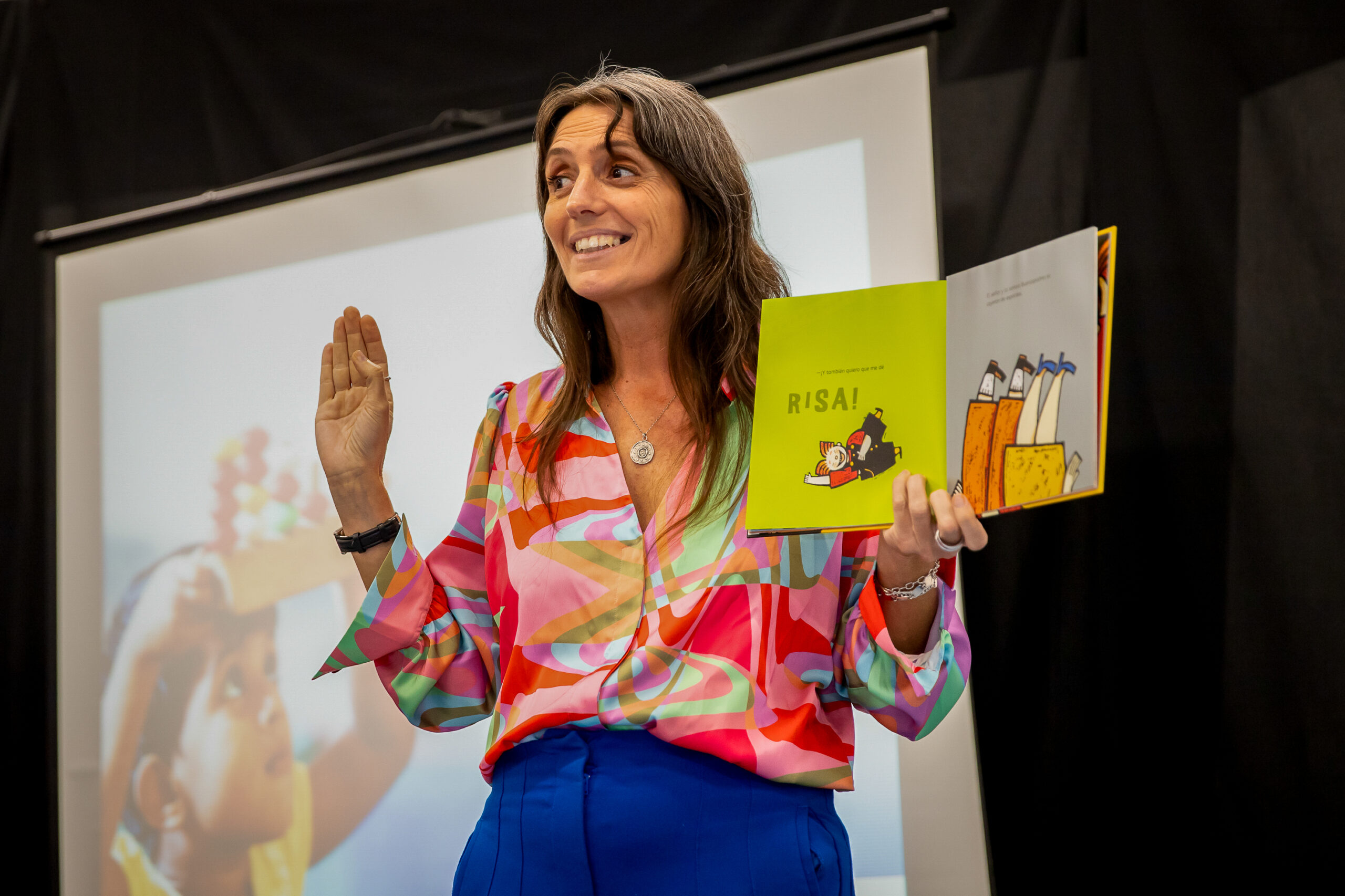
Rita Alves, a member of the Schools2030 team in Portugal, presents a learning innovation designed by a teacher through Schools2030 – AKF’s flagship education programme. AKF empowers teachers and educators to develop educational innovations which respond to problems in the classroom and foster inclusive learning environments. This innovation emerged from a workshop where educators developed solutions for issues related to social and emotional skills, with guidance from the Faculty of Psychology and Educational Sciences at the University of Porto.
Location: Sintra, Portugal
Photographer: Rui Gouveia
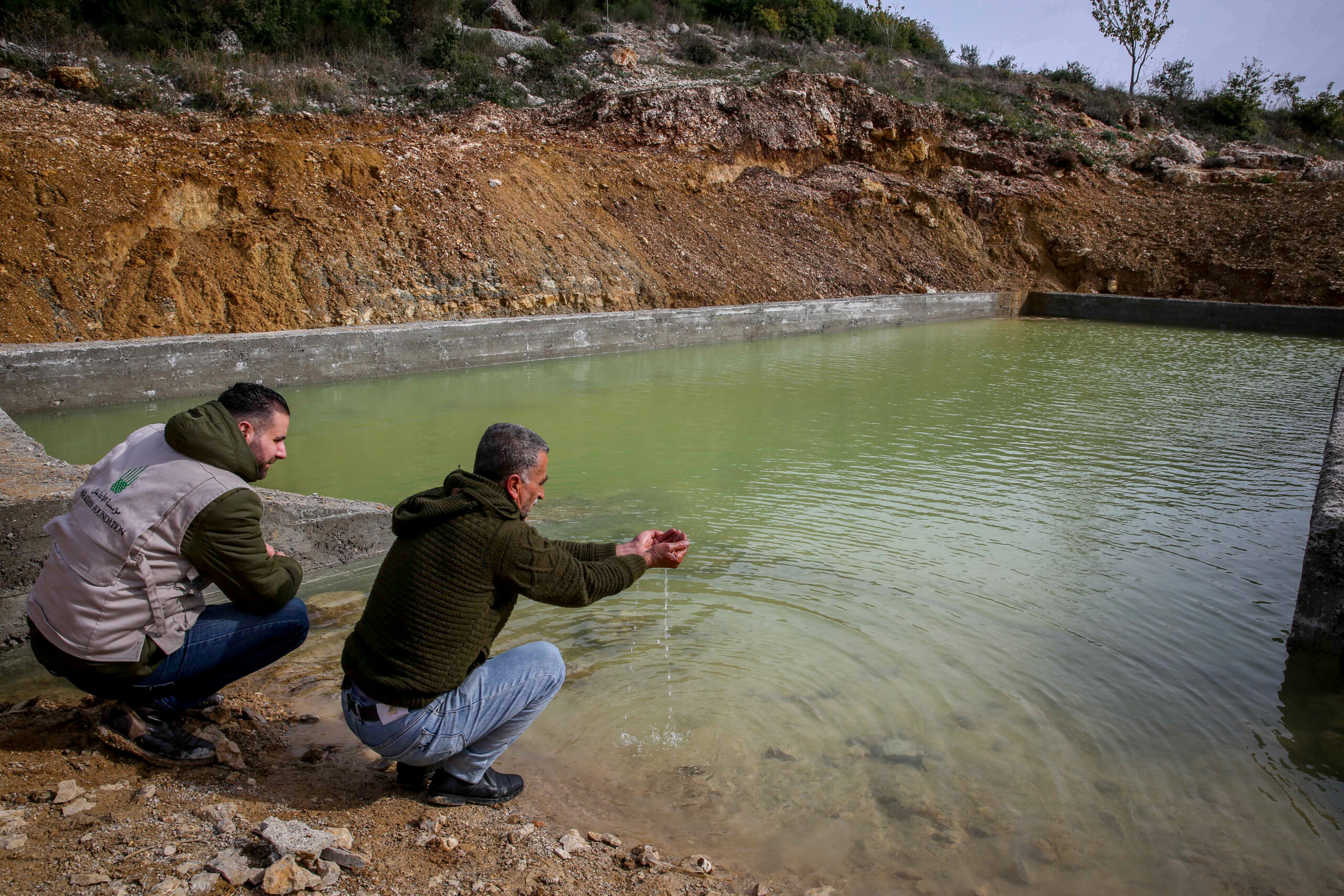
In Tartous, this reservoir serves as a water source for supplementary irrigation for rainfed crops in nearby agricultural land. Across Syria, drought and desertification is a significant and growing challenge, impacting communities that rely on farming for their livelihoods. Constructed water sources like this one ensure agricultural production is protected from climate change and remains consistent throughout the year.
Location: Tartous, Syria
Photographer: Ali Shaheen
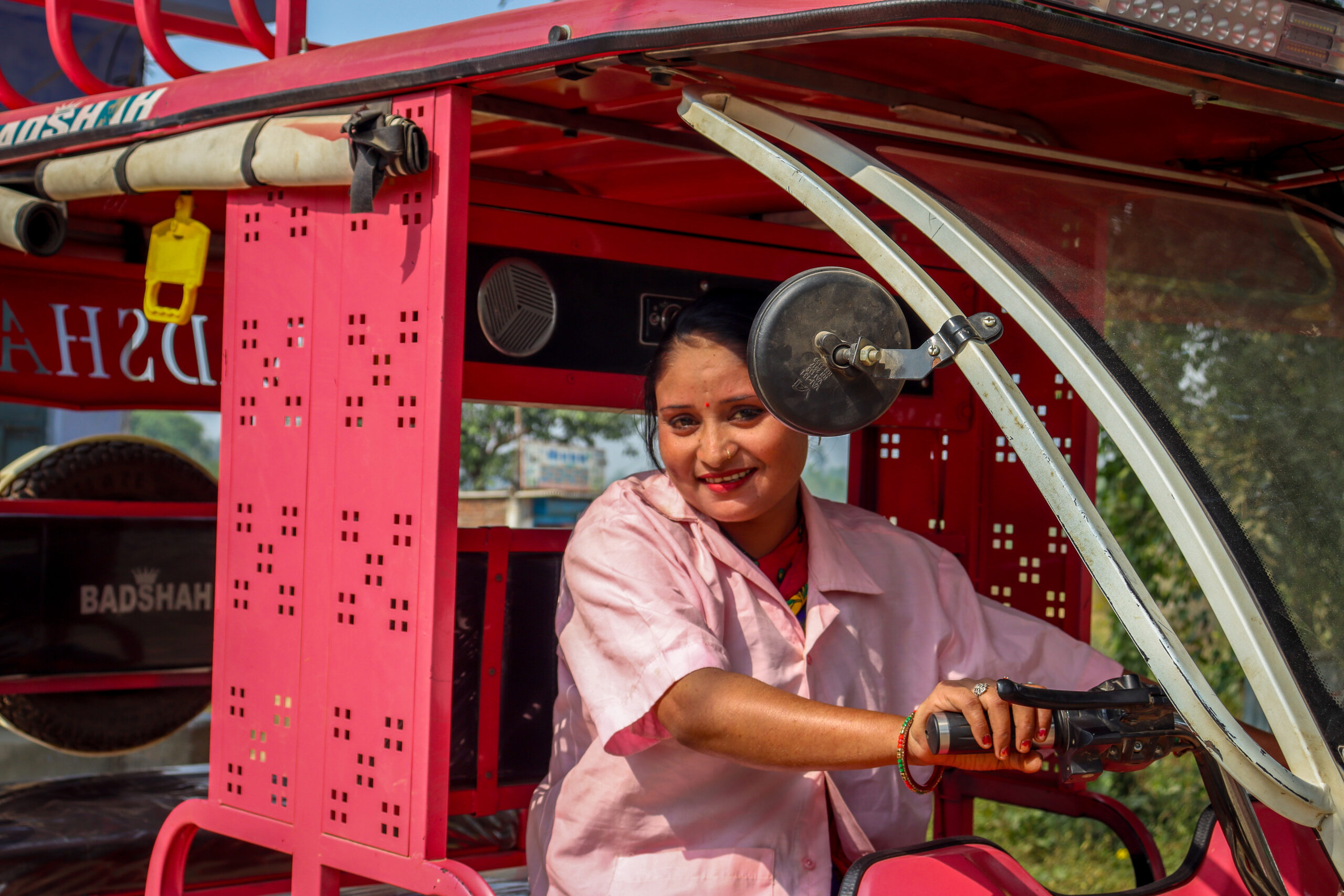
Bitti is a 25-year-old widow from Bahraich, Uttar Pradesh, who faces the challenge of supporting her two children independently. She recently joined Project Lehar, where women and girls can learn new skills, grow in confidence and build their economic resilience. Along with nine other women, Bitti was selected to receive a 50% subsidy from the government to purchase an e-rickshaw after obtaining her driving license. Now, Bitti proudly serves as a skilled female driver, earning a stable monthly income to support herself and her family. Project Lehar is a partnership between AKF and Prince’s Trust International.
Location: Uttar Pradesh, India
Photographer: Seemab Alam
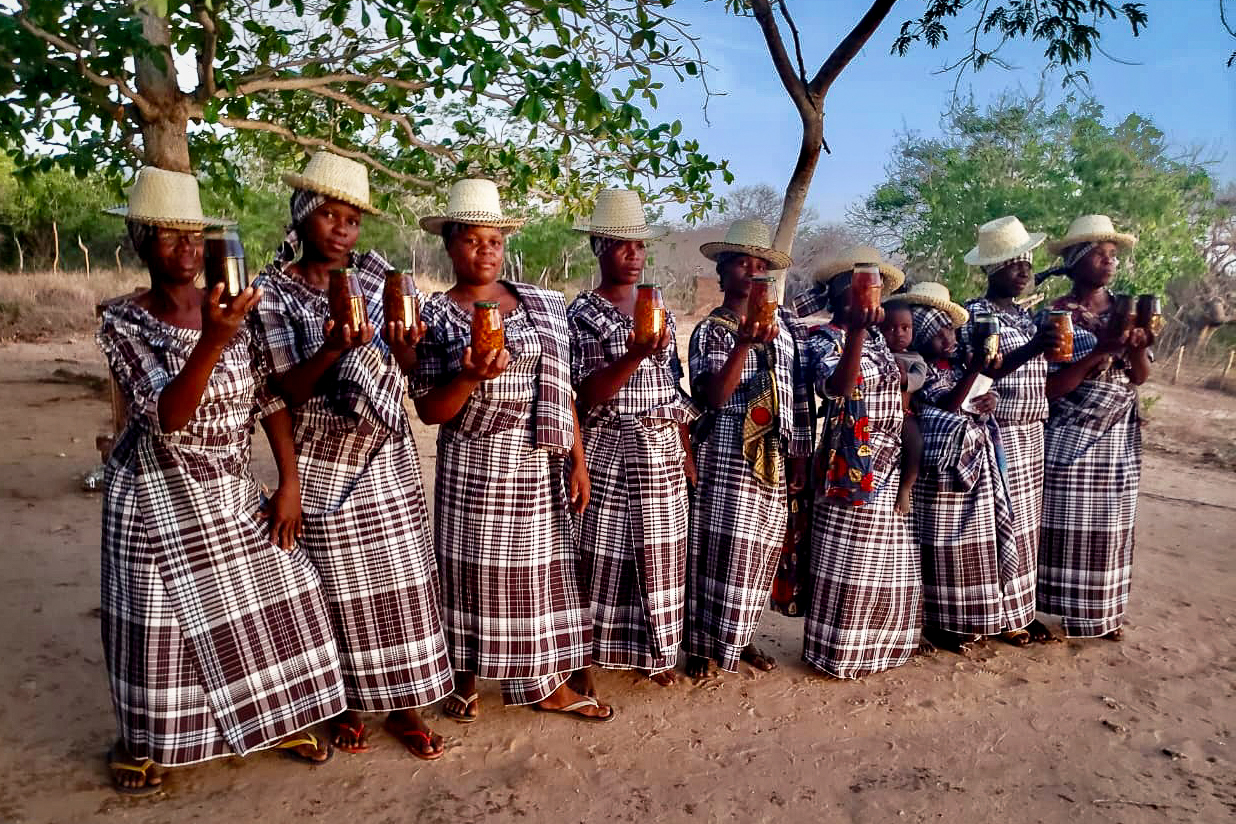
As part of the LEAP project – Local Empowered Areas of Protection – in northern Mozambique’s Metuge district, these women are working to protect the local coastal environment and its biodiversity. They are exploring ways to combine marine conservation with income generating activities. This group sustainably harvest mussels (and other molluscs), pickle them in preserved homemade curry, and bottle them in recycled containers to sell at their local market.
Location: Metuge, Mozambique
Photographer: Herminio Antonio
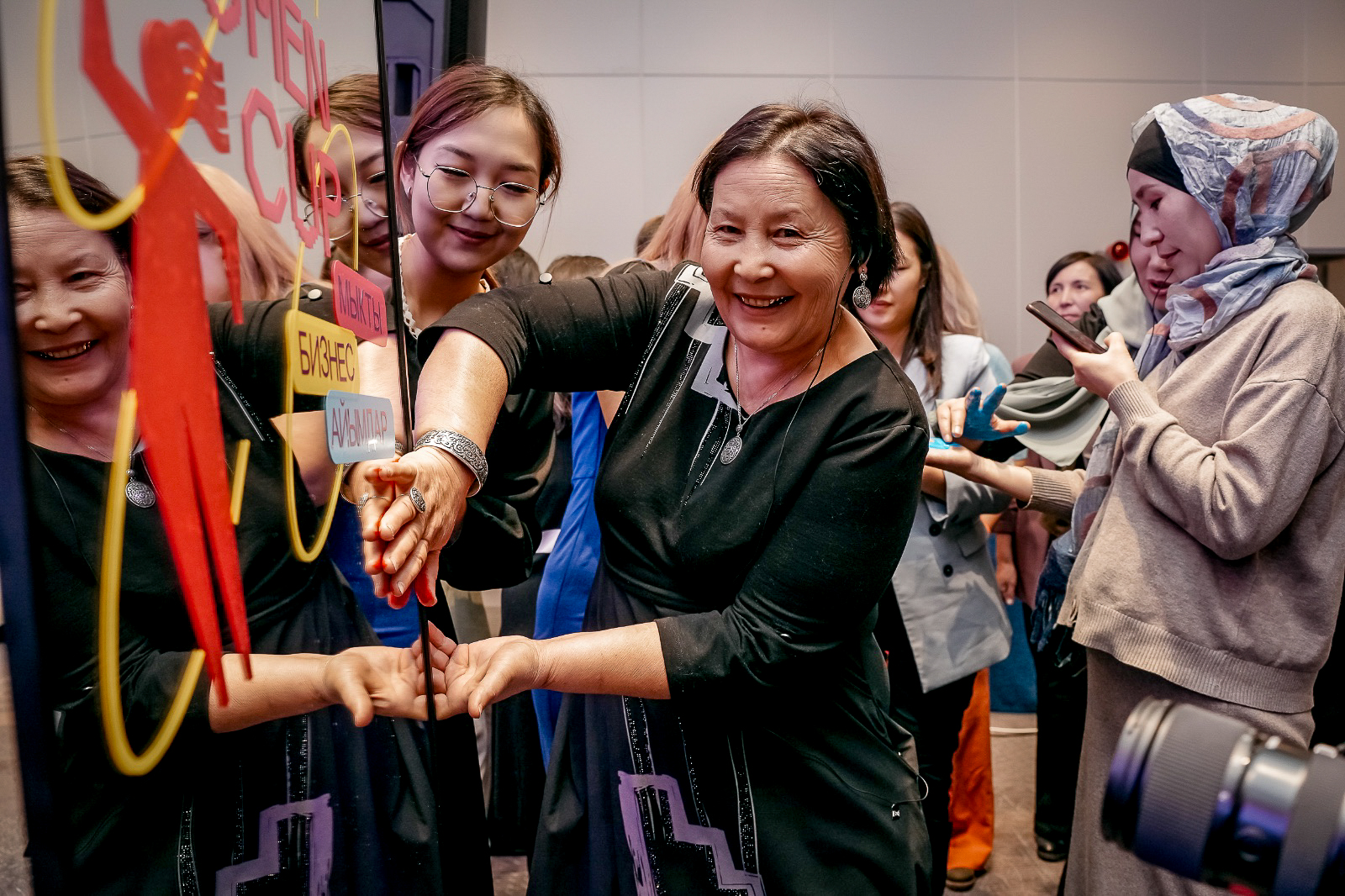
Accelerate Prosperity (AP) recently completed a business incubation for female entrepreneurs in Kyrgyz Republic. At the end of the seven-week programme, the entrepreneurs participated in the ‘Women’s Cup’ to celebrate their progress. Each entrepreneur left their handprint in colourful paint to commemorate the collaborative impact they have made on women’s entrepreneurship in the region. AP is an AKF and Aga Khan Fund for Economic Development initiative which supports rising entrepreneurs in Central and South Asia to grow new markets, create sustainable employment, and strengthen communities.
Location: Bishkek, Kyrgyz Republic
Photograph: Askat Chynaly



